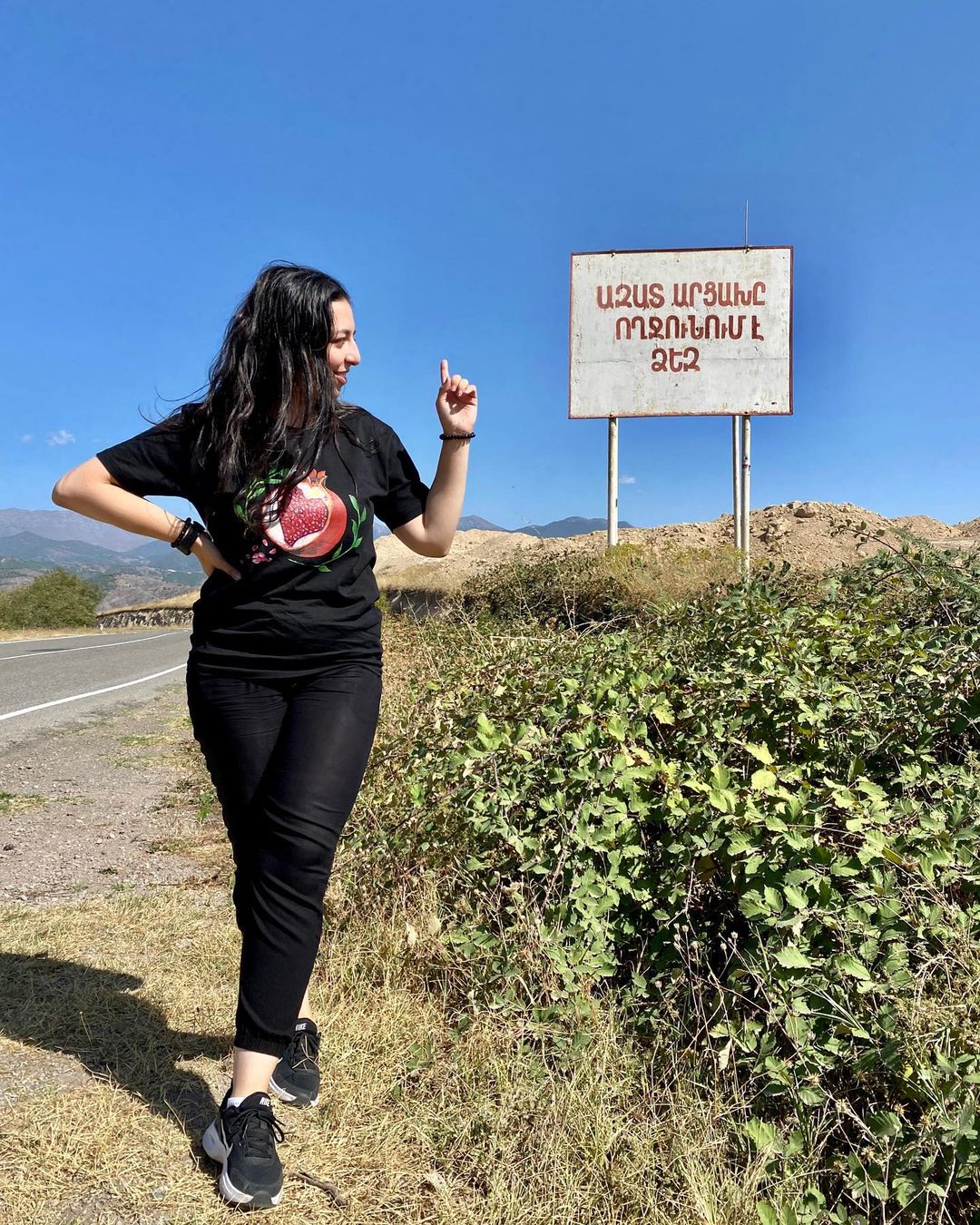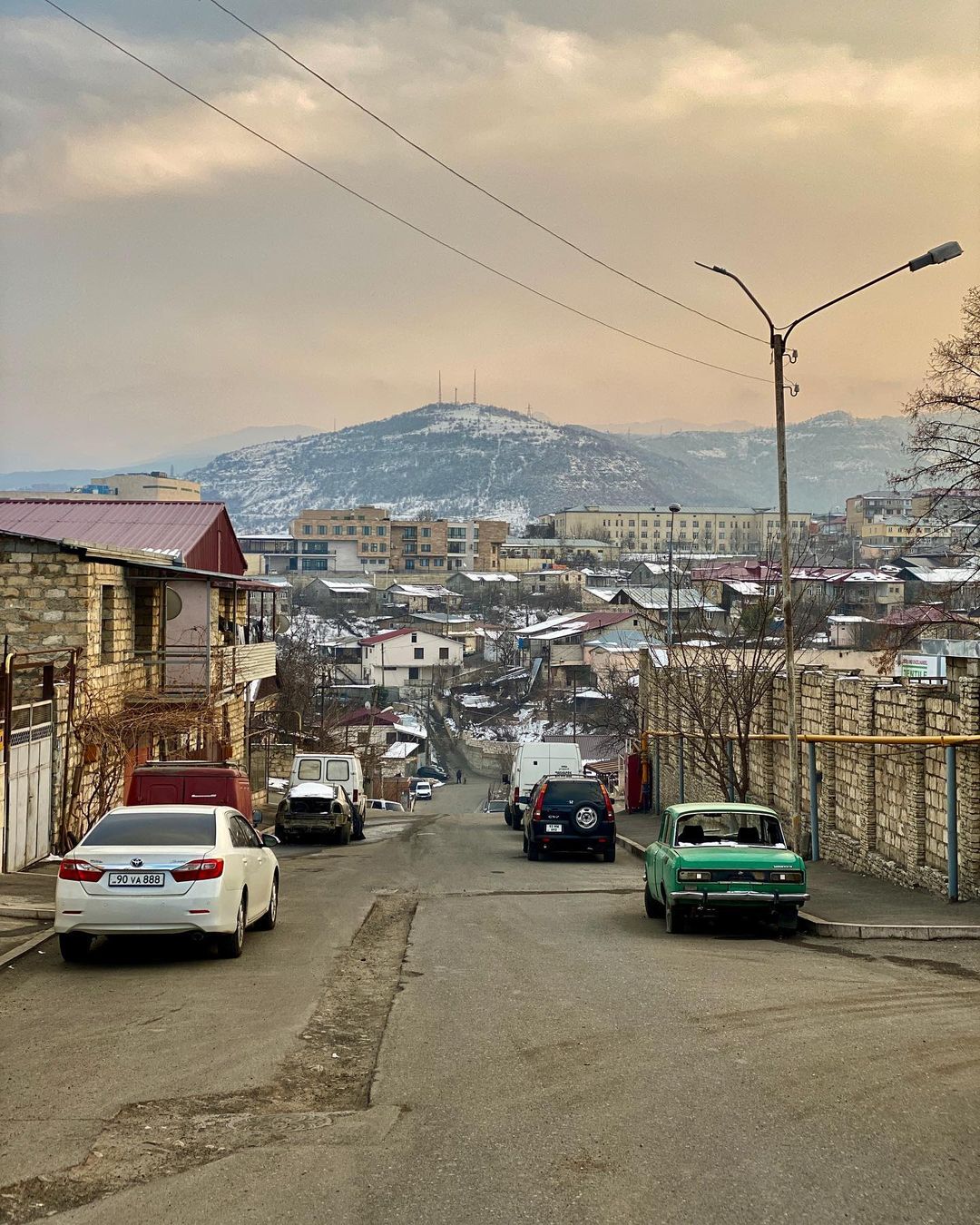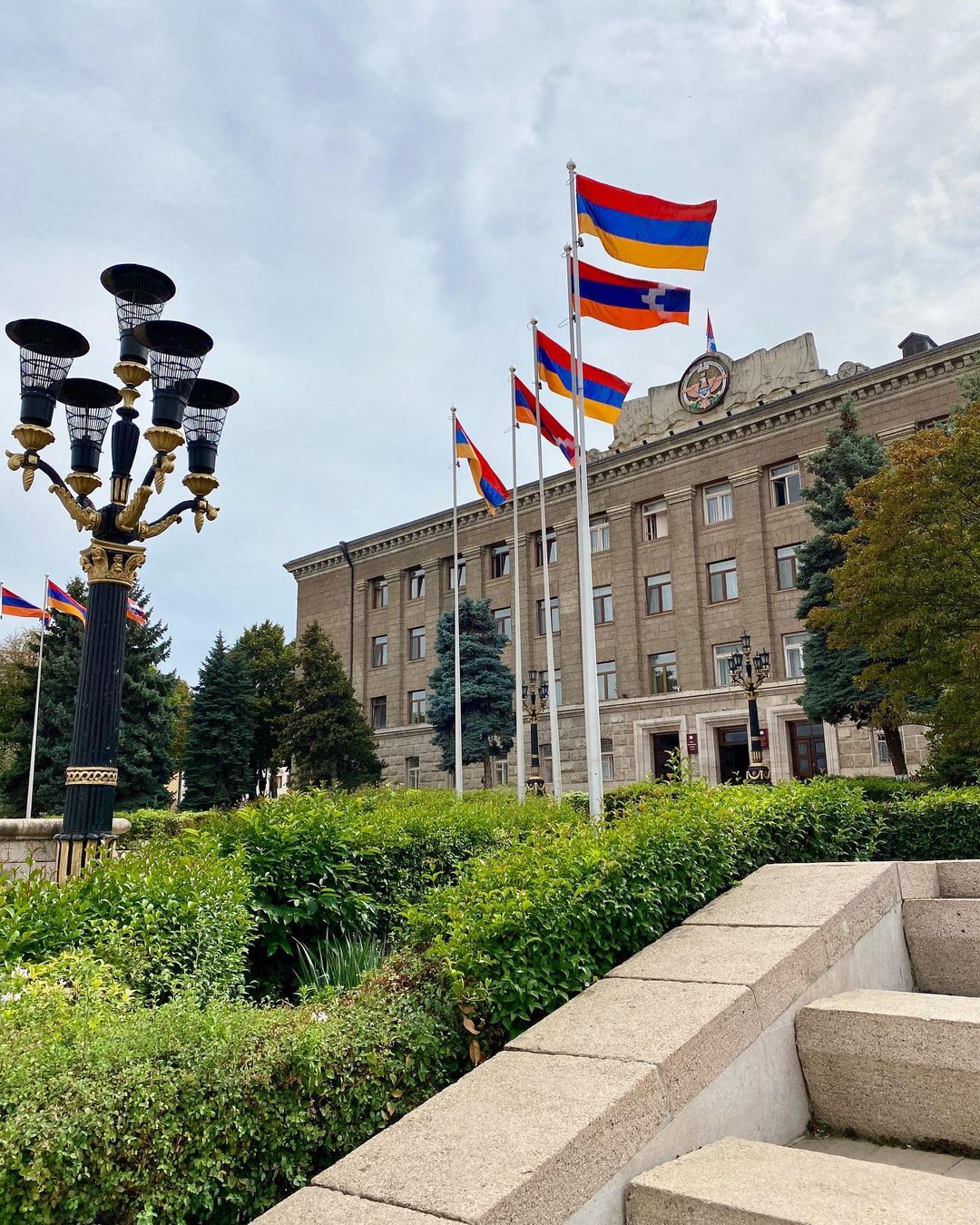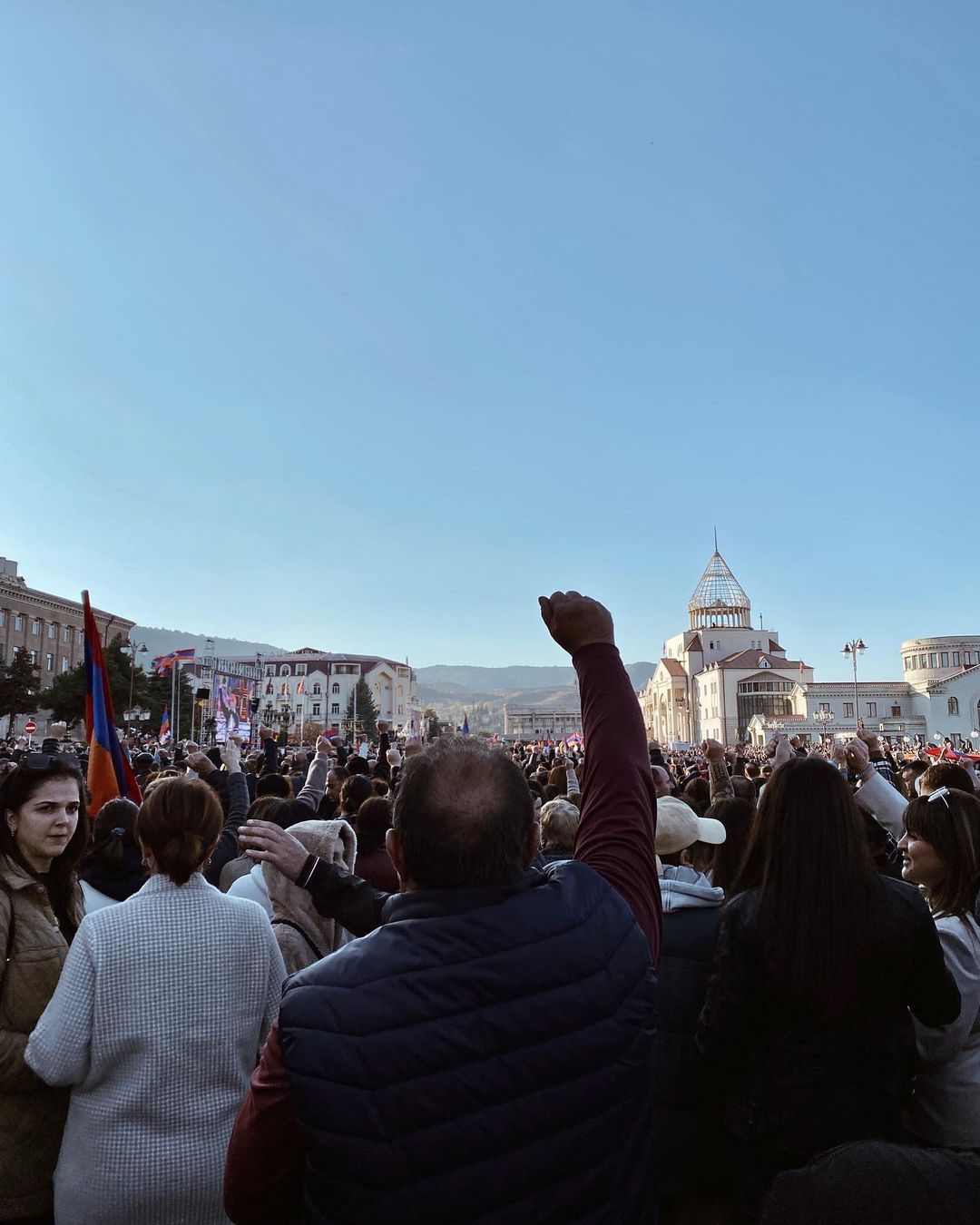My Road
14.02.2023
Repat Story
Armenia-Artsakh-Diaspora - that’s the only formula for our survival
-webp(85)-o(jpg).webp?token=fb630a4ffad82e43086fc39f6baa26f7)
For more than 2 months, the only road connecting Artsakh with Armenia has been blocked by Azerbaijan. More than 120,000 residents of Artsakh do not have a stable supply of gas, fuel and electricity, lack food and medicine, some families are separated because they cannot be reunited, the people who need medical treatment cannot be sent to other hospitals for proper treatment. Among these people there are repatriates who live and work for the benefit of Artsakh. We decided to talk to one of them. Mary Asatryan works in the Office of the Human Rights Defender of Artsakh as a iGorts program participant. She kindly agreed to answer our questions.
Repat Armenia: Tell us a little about yourself, how and when did you decide to move to Artsakh?
Mary Asatryan: My name is Mary Asatryan, I am a diasporan Armenian from Moscow, Russia and I repatriated to Artsakh in September 2022 via iGorts Program. This was one of the most conscious and determined decisions of mine throughout my whole life.
After finishing my Master studies in Belgium and having traveled to almost 30 countries for various scientific conferences and events, I had to decide where to go next and what to do in life. In the meantime, I was constantly thinking about repatriation to my Homeland, but I didn't know where to start. The Artsakh war of 2020 started exactly when I came back to my family in Moscow. And at that moment I understood - the war decided for me, I am moving to Artsakh. Right after the end of the war, I started to search for programs, jobs, internships - anything that would bring me to Artsakh.

Instagram - @mary8black
I wanted to be useful on the ground, to bring all my knowledge and experiences to the post-war Artsakh and help in rebuilding it. At that moment, I was ready for any position and any job, wherever my help would be needed. In fact, many Armenians think that it is enough to be active and engaged when our Homeland is in critical condition, however, I believe that the work done for the Homeland in peacetime is no less important, if not more decisive. When I told people around that I was moving to Artsakh, people got very surprised, asking: "Are you crazy, who is moving there now?". My answer was "When, if not now? Who, if not us?". This is my philosophy - every Armenian should feel responsible for the future of our Homeland, regardless of his place of residence, roots and background.
I can now say that I followed the call of both my mind and heart. But, most importantly, my repatriation to Artsakh was an act of love, not a decision born out of the feeling of guilt or remorse. There is, surely, a healthy sense of duty and obligation before my Homeland, but the strongest motivation behind this decision was my unconditional love for Artsakh that paved my way straight into its embrace.
RA: Tell us about your current projects, what are you doing now?
MA: I currently work as the assistant to the Human Rights Defender (Ombudsman) of Artsakh - Gegham Stepanyan. I am actively engaged in the activities of raising awareness about the human rights situation in Artsakh, about their regular violations by Azerbaijan, which should be constantly brought to the attention of the international community. Thus, we document all the violations and encroachments on fundamental rights of Artsakh people by Azerbaijan, prepare various types of materials with evidence and send them to international organizations, states and other international actors, who are engaged in the human rights advocacy activities globally. But besides raising awareness, we also call on the international organizations and various actors for concrete action, bringing forward some practical steps and recommendations in order to protect the rights of the people of Artsakh and prevent Azerbaijan from realizing its ultimate goal - ethnic cleansing of Artsakh.

Instagram - @mary8black
The paradox here is that most people think that violations of human rights in Artsakh happen only during the war, and the attention and efforts towards their protection decrease dramatically in the post-war period. But in fact, the Armenophobic policy of Azerbaijan continues to this day, and throughout the last two years we witnessed a number of gross violations by Azerbaijan - killings of dozens of Artsakh civilians, armed escalations on the territory of Artsakh (Khramort, Parukh, Berdzor), disruptions of gas, electricity, water and Internet supply to Artsakh, informational and psychological terror of the entire population (e.g. turning on Azerbaijani music and prayers via loudspeakers, calling people to leave Artsakh, spreading disinformation about Artsakh’s evacuation). Thus, for example, I work on a project called “Human Rights at gunpoint”, aimed at documenting and raising awareness about the daily struggle of people living in border villages of Artsakh, about their experiences, most pressing issues and fears, given the close vicinity of Azerbaijani military forces in the aftermath of the 2020 war. Overall, I am very happy with my job, as it is very interesting and important at the same time.
RA: How is your typical day going in this situation?
MA: As you know, we have been under a blockade for almost 2 months now. For a month now, Azerbaijan has cut off the supply of gas and electricity coming from Armenia to Artsakh. The government of Artsakh had to organize the supply of electricity based on the limited local resources, so a system of scheduled outages was introduced to deal with this critical situation. Thus, my day starts and ends by checking the rolling blackout schedule both for my office and home to be able to plan all my tasks accordingly. It is a real quest, I must say! I should manage to charge all my gadgets and accomplish all my tasks when I have electricity. Apart from that, my working day has not changed much. On the contrary, I would say, we work more actively and intensively than before, and it is quite obvious why - humanitarian crises and human rights violations automatically generate more tasks and work for our institution.

Instagram - @mary8black
RA: What has changed in people's behavior since the beginning of the blockade, how do you experience this process?
MA: People of Artsakh are one of the most resilient and strongest people I have ever met in my life. They are going through this devastating humanitarian crisis with an unprecedented strength, calmness and dignity, as they are determined to stay on their land no matter what. Instead of giving up or panicking, they find solutions to any issue, they have learnt to live in inhumane conditions through the decades of Azerbaijan’s oppression. Unfortunately, people are used to this kind of experience, so the ongoing blockade is nothing new to them, as they had witnessed a 1,5-year-long blockade during the First Artsakh War already. Therefore, there is no panic in the society whatsoever, on the contrary, this whole situation reaffirms the commitment of local Armenians to stay and struggle to live on their ancestral land.
As for me, it is, of course, distressing to have all those restrictions, but they make me only stronger and more determined to stay here. This blockade once again proved that my decision to move to Artsakh was very much relevant - the struggle for survival is not over in Artsakh yet. And of course, my love for Artsakh is much stronger than my love for comfortable life, so the blockade and all its adverse manifestations have only strengthened my bond with this land, once again reminding me about the most important values in life.
RA: What would you like to convey to our compatriots in Armenia and in diaspora?
MA: First of all, I would like to urge Armenians in diaspora not to give up. Ideally speaking, we should be vocal and visible, wherever there are Armenian communities around the world. We should be advocating and lobbying for the Armenian cause on a daily basis. I know many are frustrated, traumatized and disappointed, especially after the 2020 war, but the struggle continues. Armenians of Artsakh are still facing an existential threat of being ethnically cleansed and exiled from their ancestral lands. The war is not over, it has just entered a different phase. Every time a diasporan Armenian is tired of struggling for the Armenian cause and thinks that his/her actions are all in vain, may he/she remember that Artsakh Armenians are still not tired of living a peaceful life, just like all other people in this world.

Instagram - @mary8black
Moreover, Azerbaijan wants to get us to the point when we are so exhausted, weakened and divided as a nation that we surrender on our own. But I want to believe they are not going to enjoy watching it happen. As I said earlier, it is important to stay united, to be active and engaged in the Armenian cause on a regular basis, not only when there is a war or blockade in Artsakh. Homeland needs us every day, and not just in the hardest times. I am convinced that our everyday small investments will eventually bring us to a stronger Armenia in future. As they say, “Moscow was not built at once”. The same goes for Armenia and Artsakh.
And so, my advice would be - speak about Armenia and Artsakh, raise awareness about our Homeland, explore your roots and Homeland, in every action or decision that you take in your life, think of the Homeland and how to be useful to it. Personally, I think each Armenian should strive for repatriation, that should be the end goal of Armenians - return to our ancestral lands. As it is quite an ambitious goal, I would recommend each Armenian to start with giving a chance to Armenia and Artsakh at least once in their lifetime by moving here, even if for a short period of time. The main idea is to form a connection with this land, the rest will come on its own.
RA: What actions do the people of Artsakh expect from their compatriots in Armenia and the diaspora?
MA: Azerbaijan now resorts to the tactics of “the war of nerves” by creating such unbearable conditions of living for Artsakh Armenians that they leave their country on their own. Although locals don’t give in to this terror, they have been feeling neglected and isolated after the 2020 war as never before. With the growing anti-Artsakh sentiment and ignorance towards the destiny of Artsakh among some parts of the Armenian society, local people feel extremely lonely and hurt. I think that’s the reason why many Artsakh people chose to stay silent, as they don’t believe that their voices are heard anymore - both in Armenia and beyond. In other words, I see frustration and disappointment on both sides - in Artsakh and Armenia/diaspora, and this is the main problem we should be urgently dealing with. We need to overcome this gap, reaffirm our commitment to the struggle for Artsakh and get united in our common efforts again. There should be some sort of pan-Armenian reconciliation efforts in the first place, otherwise we won’t be able to move forward.
Therefore, I call on the Armenians worldwide to continue struggling and showing their unwavering support to Artsakh, so that 120,000 Armenians of Artsakh know they have a strong back and they are not alone in this. Armenia and Artsakh have seen even worse times, and I am sure we will overcome all the hardship, but only in case we reunite again. Armenia-Artsakh-Diaspora - that’s the only formula for our survival that has proven effective through time.
Interviewed by Ishkhan Saakyan

-webp(85)-o(jpg).webp?token=20b92fc18e7751293aec4cb24da1fecf)
-webp(85)-o(jpg).webp?token=a03da855c24795c0c528ad8fbb27edfe)
-webp(85)-o(jpg).webp?token=9cb85498523b440d844900f7d7c29989)
-webp(85)-o(jpg).webp?token=1c6afa68191ac133eb2205df7366fb76)